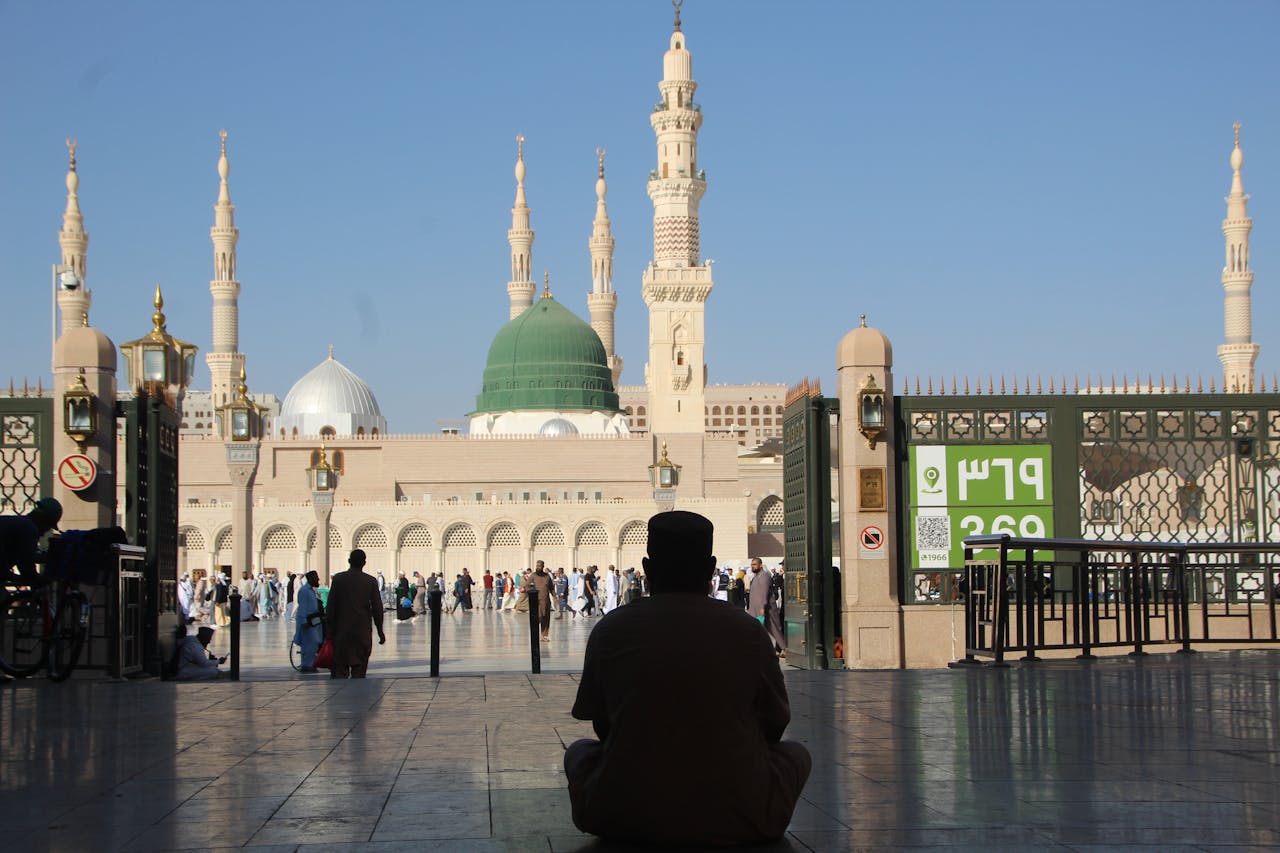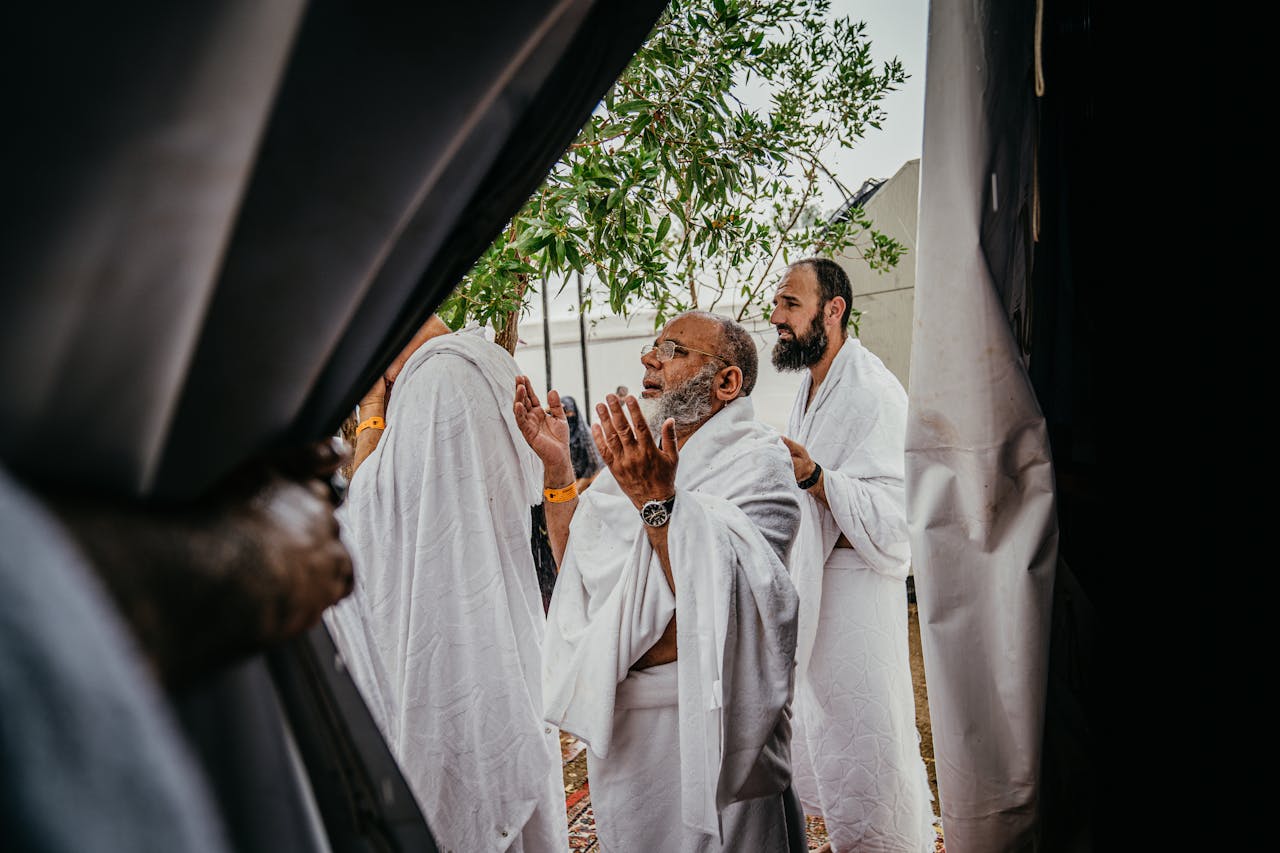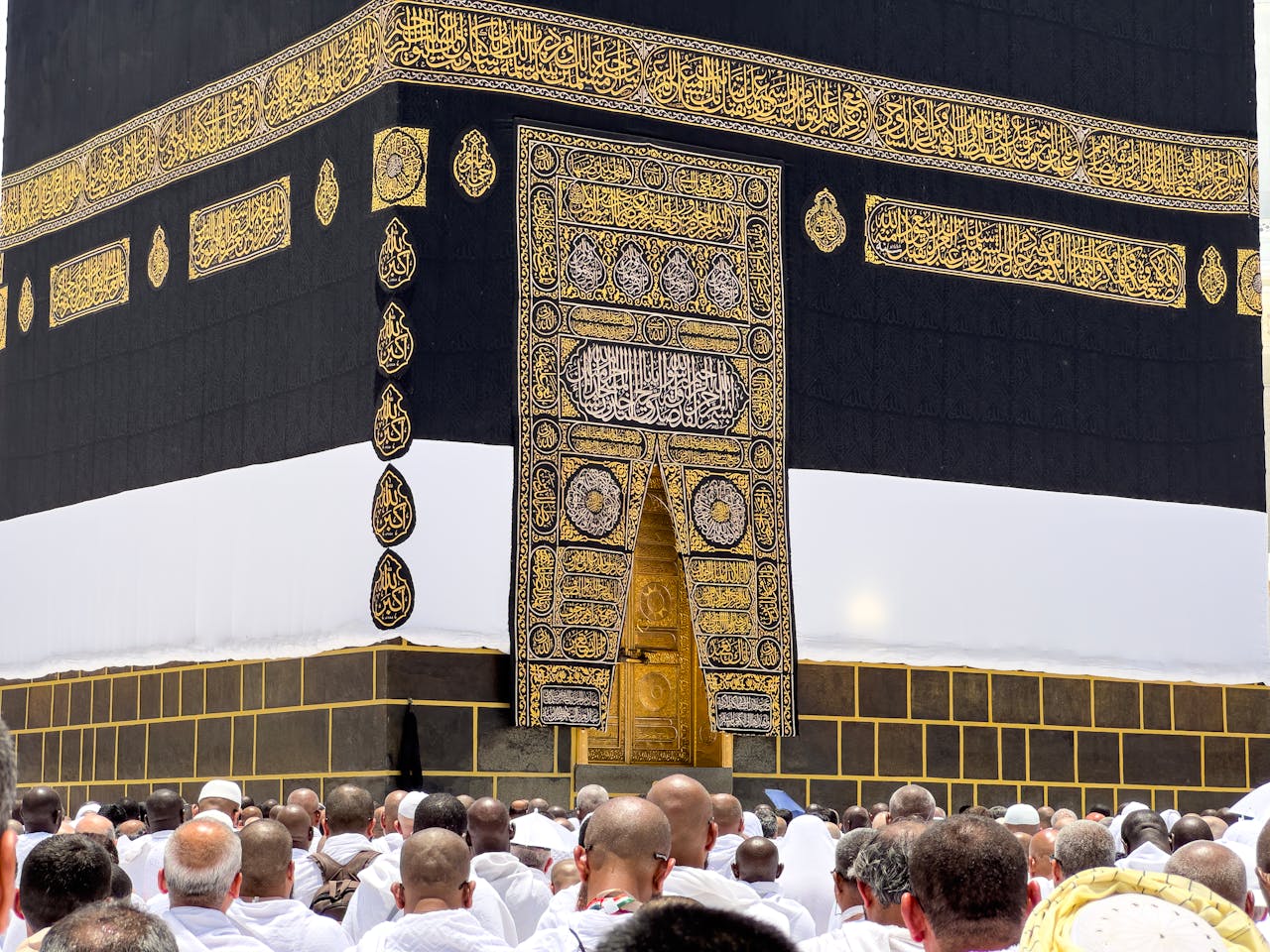Budgeting for Hajj: A Financial Planning Guide for a Life-Changing Journey

Hajj is not just a religious obligation—it’s a once-in-a-lifetime spiritual journey for millions of Muslims. But it’s also a significant financial commitment, especially for those planning to attend with family or from distant countries. Between airfare, accommodation, government fees, and ritual expenses, costs can quickly add up.
This guide breaks down the typical costs of Hajj, offers money-saving tips, and helps you choose affordable yet comfortable options—so you can focus on your worship, not your wallet.
Save on Data, Not on Devotion
Planning Hajj on a budget? Get fast, reliable mobile internet without overspending. Choose Voye Global’s Saudi Arabia eSIM for worry-free travel.
Understanding the Financial Commitment of Hajj
The cost of Hajj can range dramatically depending on:
- Your country of origin
- Whether you choose a government or private Hajj package
- The level of accommodation and service
- The time of booking and exchange rate fluctuations
Average Total Cost Estimates (Per Person):
| Region | Estimated Range (USD) |
|---|---|
| South Asia (e.g., India, Pakistan, Bangladesh) | $2,500 – $6,000 |
| Middle East | $3,000 – $7,000 |
| Europe & UK | $7,000 – $10,000+ |
| North America (USA/Canada) | $9,000 – $13,000+ |
| Africa (e.g., Nigeria, Egypt) | $3,500 – $6,500 |
Note: These prices can vary based on package types, government quotas, currency exchange rates, and seasonal surcharges.
Key Cost Components of Hajj

1. Hajj Travel Packages
This is the bulk of your expense. Packages usually include:
- Flights (roundtrip)
- Accommodation in Makkah, Madinah, Mina, and Arafat
- Local transportation
- Food and beverages
- Group guide and religious support
Tip: Compare government-approved and private packages. Some private options offer flexible payment plans but be sure they are Ministry-licensed.
2. Accommodation
Your Hajj package may offer different tiers:
- Economy tents in Mina
- Budget hotels (2–3 star)
- Luxury towers near Masjid Al Haram
Choosing slightly further accommodation from the Haram often saves hundreds of dollars.
3. Visa and Processing Fees
Some countries include this in the package; others charge separately. Typical fees include:
- Visa issuance fee
- Medical screening
- COVID-19 vaccine requirements
- Travel insurance (mandatory in many cases)
Estimated: $300–$600
4. Qurbani (Sacrificial Animal) Fee
This is an essential ritual during Hajj. Fees vary based on the organization handling it.
- Estimated range: $100 – $150
- Can be paid in advance through Hajj agencies or online portals authorized by the Saudi government.
5. Miscellaneous Costs
- Zamzam water shipping
- Ihram clothing
- Prayer mats, umbrellas, slippers
- Toiletries, medications
- SIM/eSIM data plan for mobile internet
Budget about $100–$300 for extras.
Travel Smart. Connect Instantly. Spend Wisely.
No SIM swaps, no extra fees—just high-speed internet for your pilgrimage. Voye eSIM helps you budget better and stay connected with loved ones.
Money-Saving Tips for Hajj

1. Start Planning Early
- Early bookings get the best rates.
- Some agencies offer 12–18 month installment plans.
2. Travel in Groups
Booking as a group often unlocks discounts and allows shared services (wheelchairs, guides, translators).
3. Choose a Balanced Package
You don’t need five-star accommodation steps from the Haram to have a meaningful Hajj. A mid-tier hotel within shuttle distance balances cost and comfort.
4. Budget for Off-Peak Add-ons
Avoid excessive spending in Makkah/Madinah on souvenirs or luxury food. Keep cash for essentials.
5. Use a Travel eSIM Instead of Roaming
Roaming charges can be excessive during Hajj. Use Voye Global’s eSIM for Saudi Arabia to get prepaid high-speed internet without any surprise bills.
Cost Breakdown Example: Hajj from the USA (Mid-Tier Package)
| Expense | Approx. Cost (USD) |
|---|---|
| Hajj Package (flight, hotel, food) | $8,000 |
| Visa, medical screening, insurance | $500 |
| Sacrificial Animal (Qurbani) Fee | $120 |
| Travel Gear & Essentials | $250 |
| Mobile Internet (eSIM) | $35–$60 |
| Personal spending | $200–$300 |
| Estimated Total | $9,100 – $9,500 |
Making Hajj Financially Attainable
- Open a Hajj Savings Account: Many Islamic banks offer Hajj-specific accounts that are Shariah-compliant.
- Create a Hajj Jar: Save loose change or small bills weekly—it adds up.
- Earn Reward Points or Miles: Use travel credit cards to book flights or earn hotel discounts.
- Seek Community Support: Some mosques or nonprofits help eligible Muslims save or raise funds for Hajj.
Staying Online Without Overspending
Staying connected during Hajj is crucial for:
- Real-time group coordination
- Emergency contact
- Navigation and language apps
- Following Hajj updates via official platforms
Avoid costly roaming. With Voye Global’s eSIM for Saudi Arabia, you get:
- Instant QR code activation
- No SIM swap
- Multiple prepaid data plans
- Reliable 4G/5G in Makkah, Mina, and Madinah
Make Every Riyal Count on Your Hajj Journey
Voye Global’s prepaid eSIM lets you skip roaming charges and stay connected across Saudi Arabia.
FAQs: Budgeting for Hajj
1. How much does Hajj cost from different countries?
Costs vary. South Asians may pay $2,500–$6,000, while travelers from the US or UK can pay upwards of $9,000 depending on the package and services included.
2. Are there installment plans for Hajj?
Yes, many agencies offer monthly installment plans ranging from 6–18 months. Always verify the provider is government-approved.
3. Is Qurbani included in all Hajj packages?
Some packages include the sacrificial animal fee, while others charge it separately. Always confirm this when booking.
4. Can I perform Hajj on a tight budget?
Yes. By choosing a basic Hajj package, planning early, and minimizing unnecessary extras, Hajj can be made affordable while still fulfilling.
5. Is internet included in Hajj packages?
Rarely. It’s best to buy a prepaid travel eSIM like Voye Global’s eSIM Saudi Arabia to ensure uninterrupted mobile data during your pilgrimage.
6. When should I start saving for Hajj?
Ideally, start at least 12–24 months in advance. Early savings allow you to pay in installments, handle currency changes, and prepare spiritually and financially.








